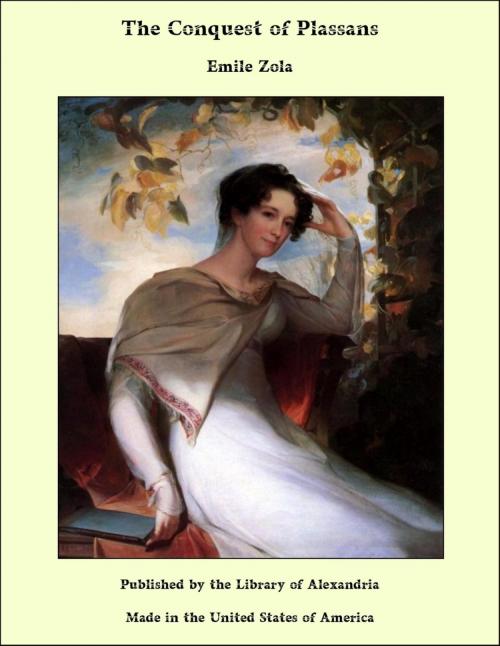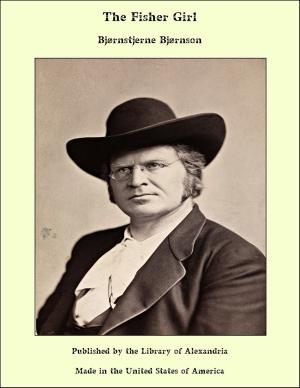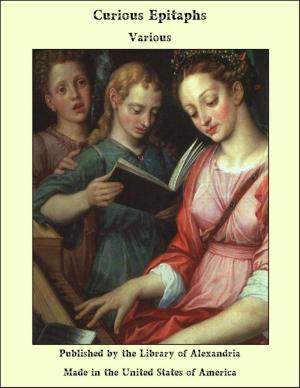The Conquest of Plassans
Nonfiction, Religion & Spirituality, New Age, History, Fiction & Literature| Author: | Emile Zola | ISBN: | 9781465619334 |
| Publisher: | Library of Alexandria | Publication: | March 8, 2015 |
| Imprint: | Language: | English |
| Author: | Emile Zola |
| ISBN: | 9781465619334 |
| Publisher: | Library of Alexandria |
| Publication: | March 8, 2015 |
| Imprint: | |
| Language: | English |
With the end of the century there has come in France a great revival of the struggle between religion and free thought which has so long been waged there; and the stupendous effort put forth by the Roman Catholic Church to annihilate the Third Republic has placed the country in a condition of unrest such as it has only known on the eve of its chief Revolutions. Behind the notorious Dreyfus case, behind the shouts of 'Long live the army!' and 'Death to the Jews!' behind all the so-called Nationalism and Militarism, the Church has been steadily, incessantly working, ever fanning the flames of discord, ever promoting and fostering coalitions of malcontents, by whose help it hopes to recover its old-time paramountcy. Time alone can reveal the outcome of this great effort, this 'forlorn hope' assault upon institutions which have hitherto kept Catholicism in check and tended so largely to the diffusion of free thought; but personally I am inclined to think, with all due allowance for partial successes achieved here and there, that this Clerical movement, however skilfully engineered under the cloak of patriotism, and however lavishly financed by the bulk of the money derived from the Lourdes 'miracles,' over which the Assumptionist Fathers preside, and the offerings of zealots throughout the country, will ultimately result in failure, for France is not at heart a religious country, and when faith has departed from a nation can it be restored? The meaning of the Clerical movement to which I have referred is twofold. In the first place there is the perfectly natural and legitimate desire of the French Catholics to recover lost ascendancy; and in the second place there is the conviction of the Vatican and the French episcopate generally that France is the only country which under favourable circumstances might be in a position to restore the temporal power of the Holy See. In that respect the Pope can hope for nothing from Spain or Austria or the Catholic States of Germany. In France rests the sole hope of the Papacy; and thus on political as well as religious grounds the establishment of a Catholic régime in place of the present-day free-thought Republic is the one great dream of those who direct the fortunes of the Holy Roman and Apostolic Church.
With the end of the century there has come in France a great revival of the struggle between religion and free thought which has so long been waged there; and the stupendous effort put forth by the Roman Catholic Church to annihilate the Third Republic has placed the country in a condition of unrest such as it has only known on the eve of its chief Revolutions. Behind the notorious Dreyfus case, behind the shouts of 'Long live the army!' and 'Death to the Jews!' behind all the so-called Nationalism and Militarism, the Church has been steadily, incessantly working, ever fanning the flames of discord, ever promoting and fostering coalitions of malcontents, by whose help it hopes to recover its old-time paramountcy. Time alone can reveal the outcome of this great effort, this 'forlorn hope' assault upon institutions which have hitherto kept Catholicism in check and tended so largely to the diffusion of free thought; but personally I am inclined to think, with all due allowance for partial successes achieved here and there, that this Clerical movement, however skilfully engineered under the cloak of patriotism, and however lavishly financed by the bulk of the money derived from the Lourdes 'miracles,' over which the Assumptionist Fathers preside, and the offerings of zealots throughout the country, will ultimately result in failure, for France is not at heart a religious country, and when faith has departed from a nation can it be restored? The meaning of the Clerical movement to which I have referred is twofold. In the first place there is the perfectly natural and legitimate desire of the French Catholics to recover lost ascendancy; and in the second place there is the conviction of the Vatican and the French episcopate generally that France is the only country which under favourable circumstances might be in a position to restore the temporal power of the Holy See. In that respect the Pope can hope for nothing from Spain or Austria or the Catholic States of Germany. In France rests the sole hope of the Papacy; and thus on political as well as religious grounds the establishment of a Catholic régime in place of the present-day free-thought Republic is the one great dream of those who direct the fortunes of the Holy Roman and Apostolic Church.















